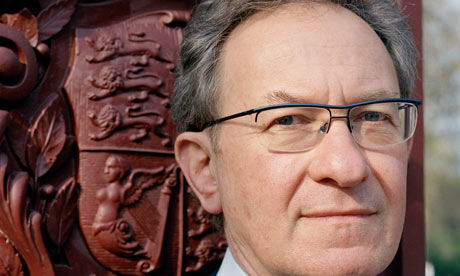
After a long winter of indifference and discontent, a glorious summer of poetry-related programming hit the BBC recently. Poets have been everywhere (on BBC2 and BBC4) – presenting programmes, being interviewed, becoming the subject of discussions and sending scurrilous emails about each other.
That the upper canopy-dwelling TV producers have allowed a little light to reach the forest floor, where the poets beetle about, is of course, a good thing. But the starting point – "poetry is in decline" or "poetry needs saving" – is the wrong one. The Newsnight Review's angle typified the position: poetry, they suggested, has "an image problem". It really doesn't. The good stuff just doesn't care about image in the first place. The problem lies with those in the media who don't understand this way of being, or who want to make very obvious the public service aspect of featuring poetry. Poetry is also "too difficult" or "too obscure", say critics. It really isn't. It should be addressed with punchy self-confidence and passion, not tip-toed around.
The poetry-in-apologetic-decline approach quickly established a cliché: the gathering of a few hasty vox pops from café dwellers, builders or shoppers, all smiling blankly or shaking their heads while failing to identify an etching of an obscure bygone poet. (But would people fare any better with a 16 or 17th century architect or painter?) This obscurity became the wrong the programme charitably set out to right. Simon Schama's shows on John Donne and Armando Iannucci's exploration of Milton's Heaven and Hell were each guilty of this – yet, crucially, both were more interesting in the moments when they confidently assumed an interest, focusing instead on expressing genuine enthusiasm for the verse.
Iannucci's passion was abundant and led him from some insightful considerations of Milton's text to some brilliantly chosen interviews: a blind academic discussed Milton's own blindness; a Guantánamo hostage revealed how poetry independently provided solace to each individual held captive in Cuba in a way other art forms could not. It all helped make Milton's language and world more tangible and led to a triumphant, tender insight into Paradise Lost's relevance today.
Michael Wood's documentary describing Beowulf's role in the building blocks of our cultural identity also had passion, although perhaps it placed the poetry too much within the nerdy awkwardness of historical re-enactment societies.
And the series My Life in Verse was celebrity-centred, but when it was heartfelt, it was good. Importantly, it conveys the consoling joy of brilliantly manipulated language – a key to good poetry TV. All those featured have been touching in their enthusiasm for poems that enhanced or shaped their lives, but patronising when shrugging gawkily about trickiness or image.
It irks to say this, but some of the less enthusing appearances have been from real poets. Simon Armitage's tracing of Sir Gawain and the Green Knight was a decent introduction, enhanced by the schadenfreude of watching Armitage getting solidly rained on, but generally it was too self-conscious and nervous. Although he was hilariously wry on occasion, ("I had arranged to meet local pagan, Chris Brown".) Armitage came across as a little too stiff and … well, wet.
And Owen Sheers's series, A Poet's Guide to Britain, wobbled between inconsequential and over-speculative to thoroughly engaging, but with too many reaction cutaways of Sheers in between. Both he and Armitage needed better direction: while the words were often good, their manners were too apologetic.
It was this beseeching quality that let the season down. It also led it astray into focusing too much on accessible biography or incident. What, for example, did we really learn about TS Eliot in Arena's BBC4 documentary, other than that he kept a scrapbook and was a bit of an old softy? And while the general preponderance of grand landscape shots provided an impression that poetry is important – almost of the land – they also demonstrated the promotion of too narrow a traditional line: the romantic/pastoral. There was little to be found of avant garde, or more experimental poetry – most likely to avoid scaring people off.
But it was, nevertheless, a valiant effort. Should viewing figures be lower than expected, perhaps it will dawn on someone that this isn't because people don't care about poetry (millions do) – but because TV producers haven't quite worked out how to televise it well enough yet. So, apology accepted. Let's see where they go from here. As the season continues, are there any suggestions to help them on the way? What might you like to see on, say, Sky's pay-per-view Poetry TV?

